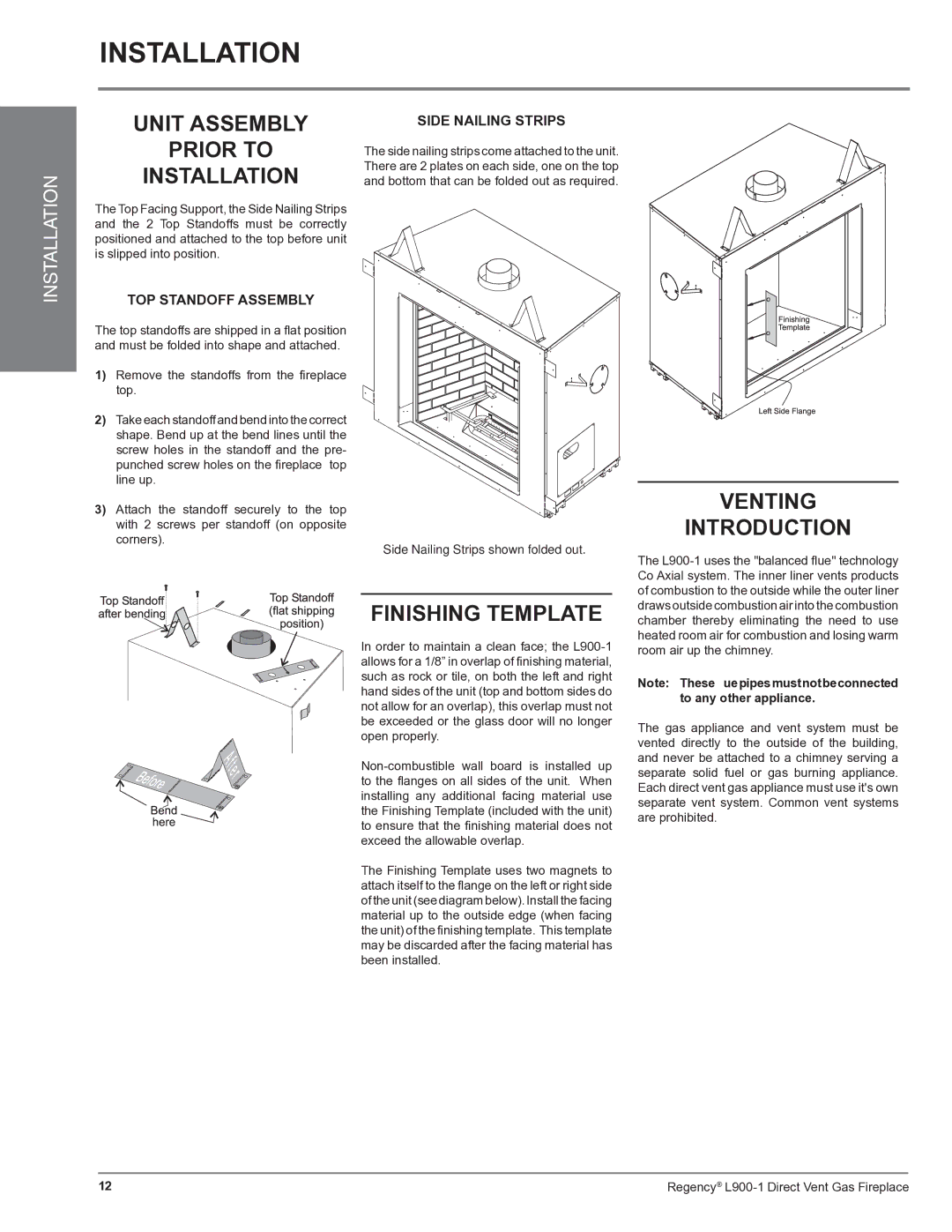L900-1 specifications
The Regency L900-1 is a remarkable innovation in the realm of radio equipment, designed for enthusiasts and professionals alike. Renowned for its exceptional performance, this model seamlessly integrates a plethora of advanced features, making it a top choice among users.One of the most notable characteristics of the Regency L900-1 is its outstanding reception capabilities. Equipped with cutting-edge digital signal processing technology, this radio provides crystal-clear audio quality even in congested frequency environments. This technology minimizes noise and interference, ensuring a pristine listening experience. Users will appreciate the enhanced sensitivity and selectivity, allowing them to easily tune into distant stations or weak signals.
The design of the L900-1 is user-friendly, featuring an intuitive interface that simplifies operation. The well-organized control panel includes a large LCD display that provides vital information at a glance, such as frequency, volume levels, and signal strength. The device also includes clearly marked buttons and knobs that are easy to navigate, catering to both beginners and seasoned radio operators.
Another standout feature of the Regency L900-1 is its versatile tuning options. Users can choose between manual tuning, automatic scanning, or preset channels, offering flexibility based on individual preferences. The radio covers a broad frequency range, enabling access to AM, FM, and SW bands, which broadens the spectrum of stations and content available to users.
Additionally, the L900-1 incorporates modern connectivity options. It supports Bluetooth pairing, allowing users to stream audio from compatible devices seamlessly. This feature is ideal for those who wish to incorporate digital media into their listening experience, ensuring that they remain connected while enjoying their favorite radio shows.
Durability is also a key aspect of the Regency L900-1. Constructed with high-quality materials, this radio withstands the rigors of outdoor use. Whether you are camping, hiking, or simply enjoying a day at the beach, the solid build ensures longevity and reliability.
In summary, the Regency L900-1 combines advanced technology, user-friendly design, and robust features, making it an outstanding choice for radio enthusiasts. Its excellent reception, versatile tuning options, and modern connectivity features set it apart in the market. For those seeking a high-quality radio experience, the Regency L900-1 is undoubtedly a worthy investment.

